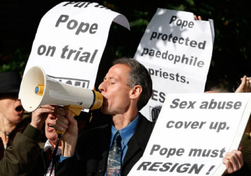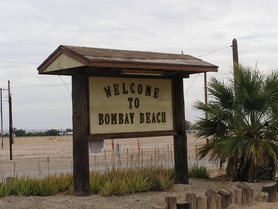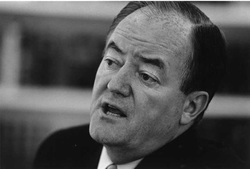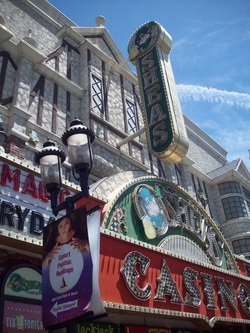
This week it was revealed that Mr. Hari has been cleaning up interviews with people by inserting things they've said or written elsewhere into their reported dialogue. For instance, Hari interviewed a gay rugby player (golly!) and quoted him as saying of his sexuality: “I used to visualise it as a little ball. I know it's crazy, but I'd imagine this little ball in my stomach and I'd have an encounter with a man and the ball would just be there. Then from that day to the next encounter, be it one month, two months, three months, all I could see was this gold liquid dripping out of the ball. That was the real me seeping out”. However, in an earlier interview with Wales Online, the same man who leaked gold was reported as saying of his predilection, “I used to visualise it as a little ball. I'd imagine this ball in my stomach and I'd have an encounter with a man and the ball would just be there. Then from that day until the next encounter, be it one month, two months, three months, all I could see was this gold liquid dripping out of the ball. That was the real me seeping out”. To his credit, when he heard the charge, Hari immediately cried mea culpa. There is now an inquiry going on as to whether or not his prestigious Orwell Prize should be rescinded.
How many historians, writers or journalists have not accidentally retold a story they heard from someone else? In my own writing I often tidy up quotes, omitting all the “ums” and “ahs”. Certain political clichés are so common that it’s possible to accurately write down what a politician said and, because they’ve said it a million times before to a million other people, accidentally commit plagiarism. Given the way that information is recycled over the internet, it’s probably time that writers collectively rethought the rules of the game.
But Janet Daley of the Telegraph is right that the problem isn’t that Hari tidied up quotes: it’s that he tidied them up to make the interviewees sound better. Almost all of his subjects were leftwing and Hari helped them to make their case with a few cosmetic tweaks. Surprisingly, few people have yet pointed out that Hari also has a nasty habit of misattributing quotes from people he doesn’t like.
In 2010, Hari went on BBC Dateline and quoted from a 2001 letter written by Cardinal Ratzinger (before he became the better known "Pope Benedict XVI") to every Roman Catholic bishop on the subject of pedophilia. The chubby churnalist claimed that the letter said, “cases of child abuse should be dealt with in the most secretive way, restrained by perpetual silence, and everybody is to observe the strictest secret.” Inferring his complicity in covering up child abuse, Hari demanded Pope Benedict’s immediate arrest. In an open letter to Britain’s Catholics, who were awaiting a state visit by the Pontiff, Hari wrote, “Which side, do you think, would be chosen by the Nazarene carpenter you find on your crucifixes? I suspect he would want Ratzinger to be greeted with an empty, repulsed silence, broken only by cries for justice – and the low approaching wail of a police siren.” (I love it when people who don’t believe Jesus existed challenge his followers to behave more like … Jesus. Isn’t it odd how non-believers use JC as the international benchmark of moral behavior? Perhaps there’s something in this Christianity nonsense.)
This was an example of Johann Hari leaping unquestionably on a source, “tidying it up”, and turning 2+2 into 5. The letter was not secret: it was published within days of being sent. The point of the missive was to remind bishops of the particular gravity of child abuse and to make it clear that Ratzinger was determined to drive it out of the Church. The word “secret” does not appear in the letter, although Hari may have translated the prose by his own fashion. It was a sign of how seriously the Vatican took child abuse that it was to be henceforth dealt with solely by the Congregation for the Doctrine of the Faith - an elevation of the crime to the status of breaking the sacramental desecration. Ratzinger instructs that individual cases be referred to tribunals and it is easy to see how someone unfamiliar with cannon law would presume that equated to a cover-up. But nowhere, nowhere, in the letter does Cardinal Ratzinger tell anyone not to contact the police. The absence of this explicit instruction should not be taken by a journalist to mean that the future Pope did not expect or wish sex offenders to go to jail. Only laziness, or hostility, would make a reporter presume that.
Throughout his career, Ratzinger was the scourge of a Vatican establishment that undoubtedly tried to suppress the truth about the scale of child abuse in the Catholic Church. His efforts were continuously obstructed and the delay has sometimes been misattributed to Ratzinger himself. Two examples: the New York Times claimed that while Bishop of Munich, Ratzinger hushed up the crimes of the pedophile priest Peter Hullermann. To quote the Times, “The future pope approved his transfer to Munich.” In fact, Ratzinger sent him to attend psychoanalysis in Munich. It was Hullermann’s local vicar who later, without the diocese’s knowledge, transferred him to a parish. Likewise, it is often claimed that Ratzinger deliberately failed to investigate Fr. Lawrence C. Murphy of Minnesota for sex crimes that had occurred twenty years previously, despite the masses of evidence against him. In fact, Ratzinger’s deputy was in charge of the case, it was the local bishop who neglected to report the assaults, and when Ratzinger did call him to justice, Murphy conveniently died. Hari has cited both of these cases as proof of Benedict XVI’s guilt - distracting those who seek justice from the real culprits for the sake of a little media sunlight.
Johann Hari’s plagiarism represents a wider degradation of reportage that should give us all pause to reflect. In my own field, great historians like Doris Kearns Goodwin and Stephen Ambrose have been accused of plagiarism, of lifting whole passages from other works and inserting them as their own (in Ambrose's case, he plundered the autobiography of George McGovern). Such theft reflects a view of prose as something functional, without inspiration or poetry. It is purely there to tell a story and, if someone else has already done it better, then beg, borrow, or steal. But Hari’s bigger, more serious crime is the bending of reality to suit a political agenda. It is his plagiarism in the pursuit of personal vendetta that is so distasteful. Conservatives do it, liberals do it and neither should be forgiven easily. I hope the British establishment won’t let Mr. Hari off the hook.




 RSS Feed
RSS Feed